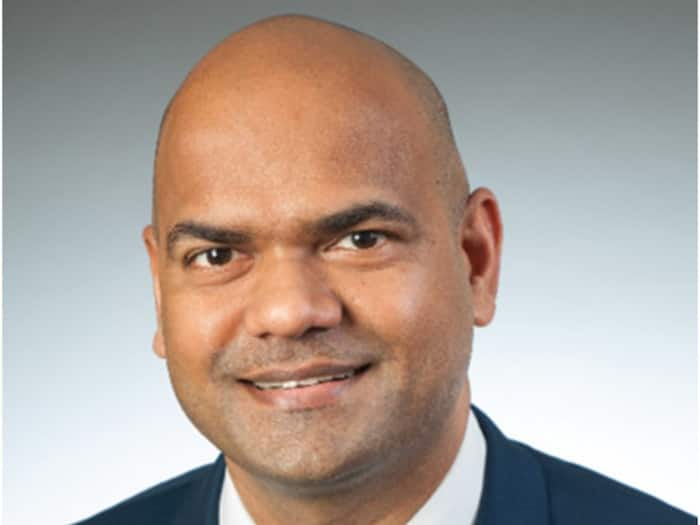
Written By Deepti Ratnam
Published By: Deepti Ratnam | Published: Mar 03, 2025, 02:41 PM (IST)

In the dynamic landscape of manufacturing digital transformation, the remarkable success of a mid-sized manufacturing company’s transition to Oracle Cloud ERP stands as a testament to innovative project execution and strategic vision. Under the leadership of Vinay Kumar Gali, this comprehensive Order-to-Cash (O2C) transformation project revolutionized the company’s operations by seamlessly integrating artificial intelligence, machine learning, and Internet of Things (IoT) technologies. This innovative implementation set new benchmarks for ERP implementation in the manufacturing sector, demonstrating how cutting-edge technology adoption can overcome complex operational challenges while maintaining business continuity.
The project initially faced significant challenges, with the manufacturing company struggling under the burden of manual order processing, delayed invoicing, and persistent inventory management issues. These operational inefficiencies were severely impacting cash flow and customer satisfaction, threatening the company’s competitive position in an increasingly digital manufacturing landscape. The complexity was further amplified by the need to maintain continuous operations during the transition from legacy systems, requiring sophisticated orchestration of system changes and process improvements through advanced automation and AI-driven workflows.
At the heart of this transformation was Vinay Kumar Gali’s innovative approach to technological integration and process optimization. His vision centered on creating AI-powered workflows that would connect order processing, inventory management, and financial operations. Through the implementation of sophisticated deep learning algorithms and advanced IoT sensors throughout the manufacturing facility, the system gained unprecedented visibility into production processes and inventory movements. Neural networks processed complex patterns in production data, continuously learning and adapting to improve operational efficiency. The cloud-based infrastructure ensured scalability and real-time data processing capabilities, while AI-driven analytics provided predictive insights for decision-making.
The technical implementation showcased the power of integrated emerging technologies. Smart IoT sensors with edge computing capabilities were deployed throughout the manufacturing floor, processing over two million data points daily for real-time monitoring of production processes and equipment performance. Advanced machine learning algorithms analyzed this continuous stream of data to optimize production schedules and predict maintenance needs, reducing downtime by 75%. The system’s AI capabilities extended to quality control, where computer vision systems automatically inspected products, achieving a 99.8% accuracy rate in defect detection while processing over 200,000 images daily.
Cloud computing formed the backbone of this digital transformation, enabling seamless integration between various systems and providing the computational power needed for advanced analytics. The Oracle Cloud ERP implementation incorporated quantum-inspired optimization algorithms for complex production scheduling, achieving a 25% improvement in resource utilization. Custom dashboards leveraging augmented analytics provided real-time performance monitoring, enabling non-technical staff to perform sophisticated data analysis through natural language interfaces.
A cornerstone of the project’s success was Vinay’s innovative approach to data integration and security. Understanding the critical nature of manufacturing operations, he implemented a zero-trust security framework with AI-powered threat detection systems that processed over 15 million security events daily. Blockchain technology ensured data integrity and traceability throughout the supply chain, while advanced ETL processes powered by machine learning algorithms automated data cleansing and validation with 99.9% accuracy.
The implementation included cutting-edge Industrial IoT (IIoT) solutions that transformed the factory floor. Digital twin technology provided real-time monitoring and simulation capabilities for critical equipment, enabling predictive maintenance that reduced unplanned downtime by 85%. Edge computing nodes at key production points ensured real-time processing of sensor data, enabling instant responses to changing production conditions.
The measured outcomes of this technology-driven transformation were substantial. The AI-powered implementation achieved a 40% reduction in processing time, while machine learning algorithms improved order accuracy rates by 65%. IoT-enabled inventory tracking reduced carrying costs by 30%, and AI-driven collections processes decreased days sales outstanding by 25%. Energy consumption reduced by 40% through AI-optimized operations, while worker productivity increased by 70% through advanced automation and augmented reality-assisted workflows.
The technical architecture showcased a future-ready design with microservices-based components, API-first design, and event-driven architecture supporting real-time business operations. The integration of augmented reality (AR) and virtual reality (VR) technologies in maintenance and training processes reduced error rates while improving efficiency, with AR-guided maintenance procedures reducing repair times by 45%.
Looking forward, this project’s success has profound implications for the manufacturing industry, providing a blueprint for technology-driven transformation initiatives. It validates Vinay Kumar Gali’s vision that successful digital transformation requires not just technical expertise, but a deep understanding of how emerging technologies can be leveraged to create sustainable competitive advantages. The project’s success in creating an AI-driven, IoT-enabled foundation for future growth while addressing immediate operational challenges demonstrates the power of combining innovative technology with strategic business thinking.
About Vinay Kumar Gali
Known for his strategic vision and technological innovation, Vinay Kumar Gali has distinguished himself through his groundbreaking approach to ERP implementation and digital transformation. His expertise in integrating artificial intelligence, machine learning, IoT, and cloud computing has resulted in significant improvements in operational efficiency across multiple projects. With deep expertise in Oracle Cloud ERP and a comprehensive understanding of emerging technologies in manufacturing operations, Vinay combines technical excellence with practical business acumen to drive innovative digital transformation initiatives. His leadership style emphasizes technological innovation, data-driven decision-making, and continuous improvement, fostering an environment where cutting-edge technology and business value creation go hand in hand. Throughout his career, Vinay has maintained a focus on developing scalable, technology-driven solutions that not only address immediate operational challenges but also provide a foundation for future growth and innovation in the digital age.